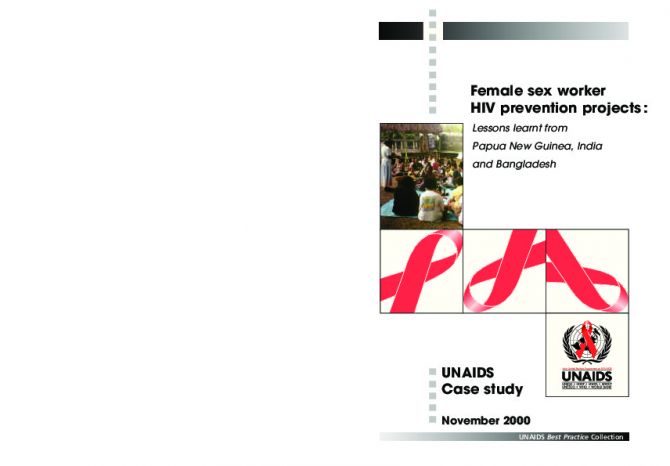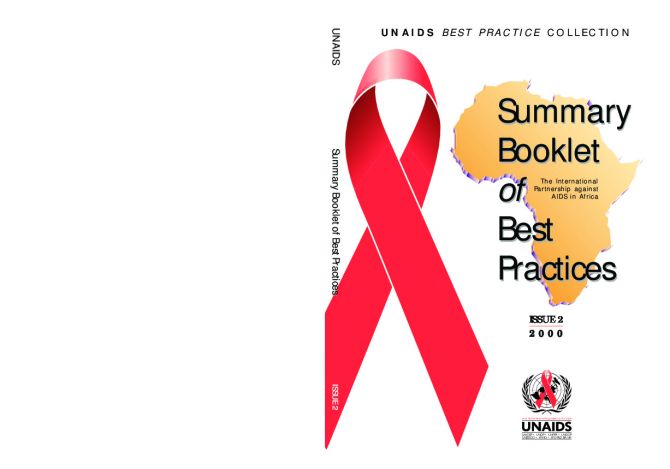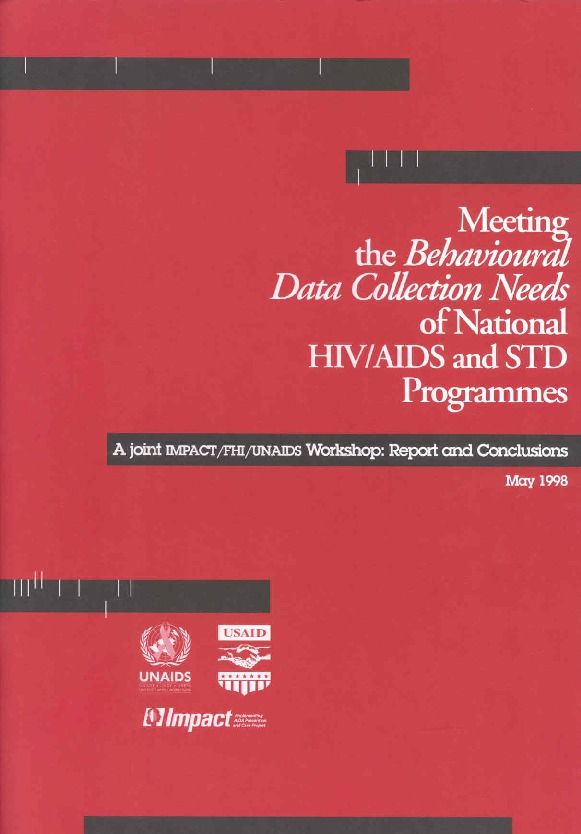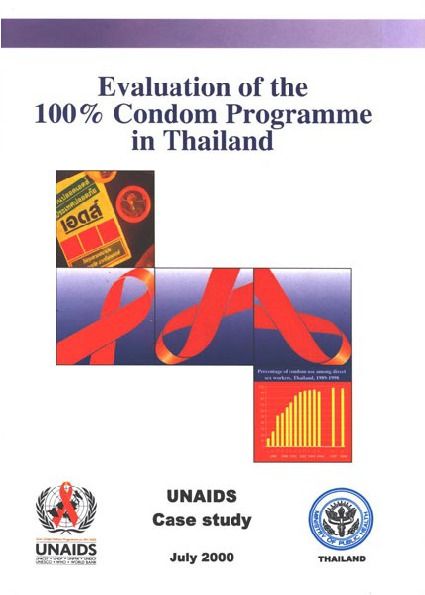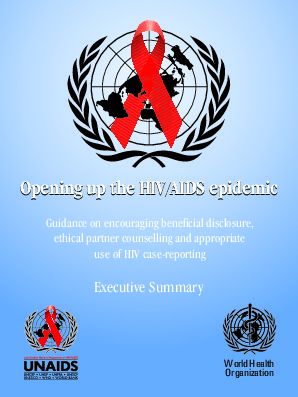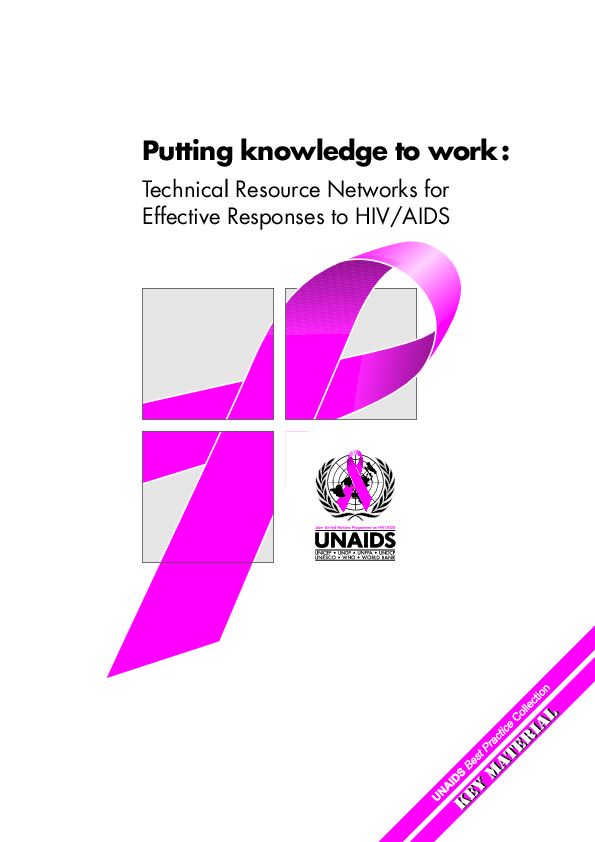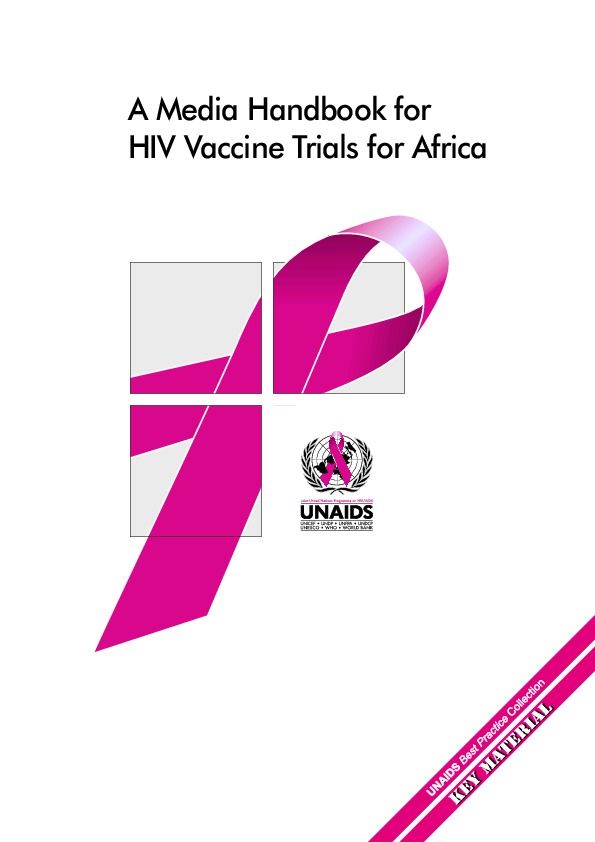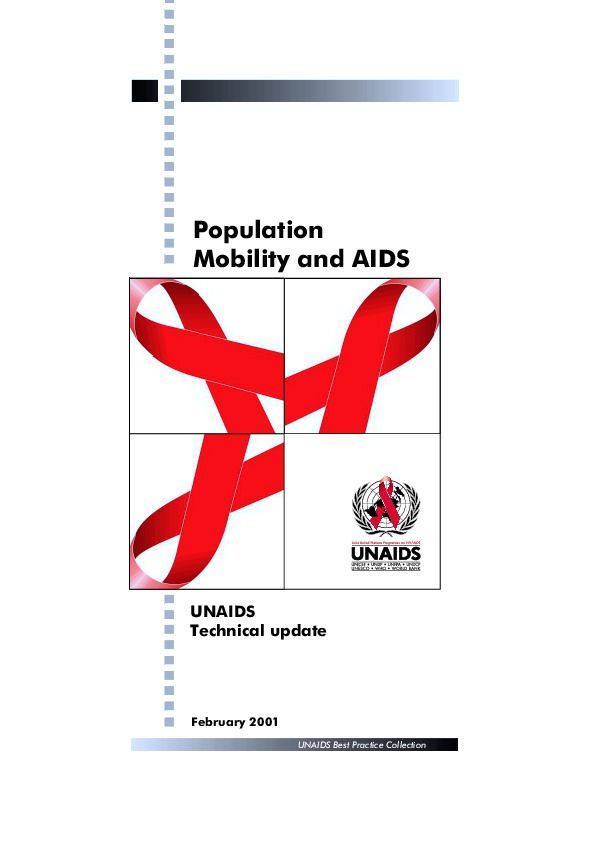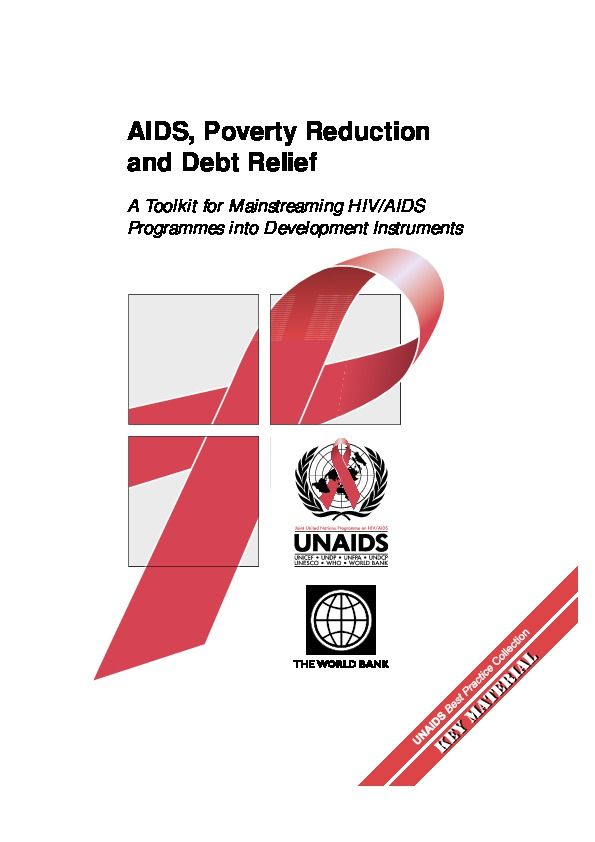Documents
Female sex worker projects in the Asia-Pacific region: three case studies
30 November 2000
The set of case studies in this collection emerged from a session entitled Best Practices in Female Sex Worker Projects held at the Fourth International Congress on AIDS in Asia and the Pacific in Manila, October 1997. Preparation for the session began in May 1997 when UNAIDS sponsored an effort to learn about sex worker projects.
Documents
Summary booklet of best practices, issue 2 : the International Partnership against AIDS in Africa
01 December 2000
AIDS is now the leading killer in sub-Saharan Africa—a region where the infection levels are the highest, access to care is the lowest, and social and economic safety nets, which might help families cope with the epidemic’s impact, are badly frayed. African leaders are demonstrating unprecedented leadership in the fight against HIV/AIDS with the creation of the International Partnership against AIDS in Africa (IPAA)—an organization that believes that within the next 10 years, African nations, with the support of the international community, will be implementing larger-scale, sustained, and more effective multisectoral national responses to HIV/AIDS. This booklet attempts to capture details of a range of Best Practices in order to provide useful lessons and offer references for all actors of the IPAA.
Documents
Opening up the HIV/AIDS epidemic : guidance on encouraging beneficial disclosure, ethical partner counselling, and appropriate use of HIV case reporting : executive summary
07 February 2001
Denial, stigma and discrimination continue to surround HIV/AIDS, resulting in a high level of secrecy concerning the epidemic. Governments and communities are at a loss as to how to deal with this and have called for new approaches to respond to the epidemic, particularly in high-prevalence areas. This document highlights the need to identify the causes and consequences of the denial, stigma, discrimination and secrecy that surround HIV/AIDS and hinder effective responses. It proposes that opening up the HIV/AIDS epidemic involves the encouragement of beneficial disclosure, ethical partner counselling and the appropriate use of HIV case reporting. The guidance the document offers is based on the firm belief that human rights and ethical principles are essential in the creation of an effective public health environment in which most people are encouraged to, and indeed do, change their behaviour, prevent their own infection or onward transmission, and receive care.
Documents
Condom social marketing : selected case studies
07 February 2001
In the mid-1980s, condom social marketing emerged as a key strategy in the fight against the spread of HIV/AIDS. Through social marketing programmes in countries affected by the epidemic, condoms are now more readily available, affordable and acceptable to sexually active men and women. This document is the fourth in a series on social marketing produced by UNAIDS. It provides basic information on this activity and how its concepts and techniques may be applied to the spread of HIV/AIDS, particularly in developing countries. It presents six different social marketing techniques drawn from on-going projects in Cameroon, Columbia, Haiti, India, Kenya, and Mozambique in the field of reproductive health and prevention of HIV/AIDS/STIS. Individually they illustrate real-life approaches to condom promotion through social marketing, in response to particular needs. In addition, they demonstrate the flexibility of social marketing and how the technique can be adapted to deal with differing situations.
Documents
A Media Handbook for HIV Vaccine Trials for Africa
07 March 2001
This handbook aims to equip scientists especially with ideas, skills and knowledge on how to relate to the media and thereby reach both the general public and some specific groups. The handbook is not a communication strategy and does not address all aspects of communication and audiences that must be included in effective communication and vaccine trials.
Documents
Population mobility and AIDS : UNAIDS technical update
07 March 2001
There is an urgent need to develop and implement more effective responses to HIV/AIDS for migrants and mobile populations. Such responses should empower these populations to protect themselves against infection, provide them with care and support, and reduce the onward transmission of HIV. This document briefly describes both the challenges involved (increased vulnerability and risk-taking, and lack of attention and resources) and some possible effective responses. It also gives examples of successful interventions that address the issue of migration and AIDS, such as the Mothusimpilo Project in Carleton, South Africa.
Documents
AIDS, poverty reduction and debt relief : a toolkit for mainstreaming HIV/AIDS programmes into development instruments
13 March 2001
For poor countries, where Poverty Reduction Strategy Papers (PRSPs) serve as the country’s agenda for poverty reduction, it is crucial for country-level managers to make credible proposals for the inclusion of HIV/AIDS in their poverty reduction efforts. Yet, while several countries have effectively done so, many others have not. This toolkit is addressed primarily to those responsible for getting the HIV/AIDS agenda into the country’s broader development efforts. It is also aimed at officials of agencies such as nongovernmental organizations and the international financial institutions, which work with countries on PRSPs and Highly Indebted Poor Country (HIPC) documents. The document examines issues such as the potential benefits of giving HIV/AIDS a prominent place in PRSPs and HIPC agreements; the contribution of National AIDS Programmes to poverty reduction; and the essential HIV/AIDS contents in the PRSP and HIPC documents.

